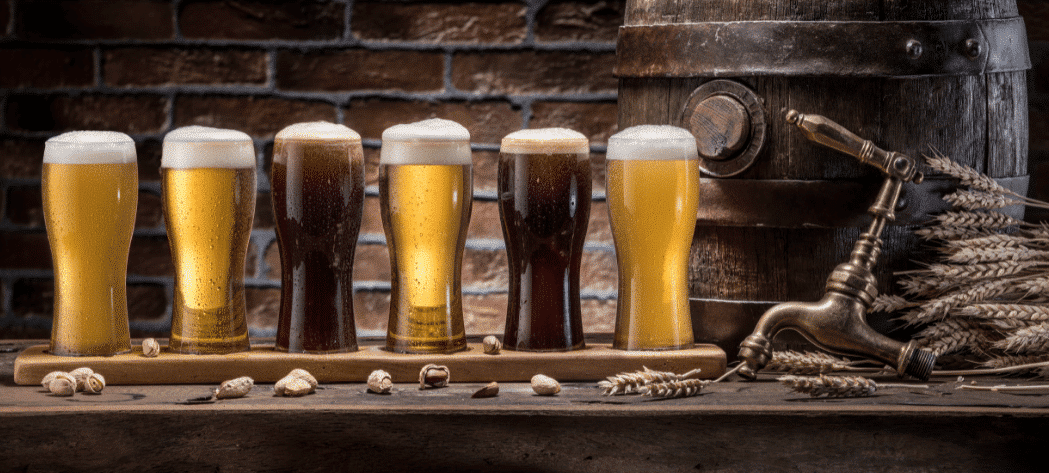Beverage conglomerate, Lion, has acquired Fermentum Group, owner of boutique craft beer label, Stone & Wood. The transaction required the approval of the ACCC, with the regulator announcing on 4 November 2021 that it will not oppose the deal.
The acquisition continues a trend in the craft brewery market, with many small producers acquired by their much larger competitors in recent years. However, aside from ACCC concerns about lessening competition, these acquisitions raise issues around how boutique products are then marketed to an increasingly discerning craft beer consumer.
Acquisition by Lion of Fermentum Group – no lessening of competition
The ACCC considered whether the proposed acquisition would substantially lessen competition in the supply of beer, ultimately concluding that a “wide range of alternative independent craft beers will remain available in the market even if the transaction goes through”.
The ACCC’s decision was influenced by the fact that Fermentum’s brands generally sit in a higher price bracket and therefore do not closely compete with Lion’s products. Additionally, the ACCC held that the proposed acquisition would not stop or restrict the growth of independent brewers given the fact that consumer demand for independent or ‘craft’ beer has grown significantly in recent years, nor would it limit their ability to access beer taps or shelf space in liquor stores. This was supported by the ACCC’s understanding that, following the acquisition, Stone & Wood would no longer be eligible to appear in beer taps reserved for independent brewers.
Some market participants raised concerns during the ACCC’s investigation that the packaging and labelling on beers made by the major breweries may confuse consumers as to who ultimately owns the company that made the beer. In response, the ACCC Commissioner stated that “consumers that wish to purchase independent craft beer should carefully read the information provided on the label, or ask the person serving them if the beer is made by an independent brewer”.
This raises the importance of beverage manufacturers providing proper labelling on their products as to the origin, ownership and craft nature of their beer.
Product labelling & marketing – the importance of getting it right
In April 2014, the ACCC issued two Infringement Notices to major beverage manufacturer CUB Pty Ltd trading as Carton & United Breweries (CUB) in respect of CUB’s representation that Byron Bay Pale Lager was brewed by a small local brewer in Byron Bay, when in fact it was brewed by CUB at one of its breweries in Warnervale (located approximately 630km from Byron Bay).
In 2011, CUB entered into a licence agreement with Byron Bay Beverages Pty Ltd trading as Byron Bay Brewing Company (BBBC) to manufacture beer in accordance with BBBC’s recipes, including their original recipe for Byron Bay Pale Lager, and to market and distribute the beer using BBBC’s trademarks.
In 2013, CUB begun supplying Byron Bay Pale Lager in its capacity as licensee for BBBC with labelling that included the name ‘Byron Bay Pale Lager’, a picture of a lighthouse, text regarding Byron Bay and a map of the Byron Bay region which showed the location of the Byron Bay Brewing Company. The ACCC issued the Infringement Notices on the basis that these representations were in breach of sections 29(1)(a) and (k) of the Australian Consumer Law for being false and misleading, given that the beer was in fact manufactured in Warnervale. As a result, CUB paid the two Infringement Notices to the value of $20,400 and provided the ACCC with a court enforceable undertaking which acknowledged that the labelling on their beer may have misled consumers as to the ownership, origin and scale of the brewery in which the beer had been brewed. CUB also undertook to cease distributing the product with the misleading labelling, place corrective notices on its website and to provide corrective notices for retailers to display at point-of-sale.
In a media release issued on 29 April 2014, the ACCC reiterated that marketing and labelling in the beer market must appropriately reflect where and by whom the beer is brewed, in order to protect the interests of consumers and small craft breweries.
Key takeaway – plan to re-label and re-position your “boutique” product
In the scheme of things, the fines issued to CUB were not too egregious. But the brand damage resulting from the ACCC publication of its enforcement action would be far more significant. Moreover, any change to the Byron Bay labels following the ACCC action would no doubt have affected their marketability.
It is important that owners of newly acquired brands (or brands that have undergone major growth and/or manufacturing changes) take the time to complete a label review to ensure they are not continuing to market themselves as ‘craft’, ‘boutique’ or ‘independent’ if that is no longer the case. Otherwise, they face the risk of being issued an infringement notice by the ACCC for false and misleading representations in their labelling. In fact, a plan as to how to re-label and re-position successful craft products ought to be in place before the trigger is pulled on any purchase or big scale-up.
If you have any questions around food labelling and marketing, please don’t hesitate to contact our Food & Beverage team.








